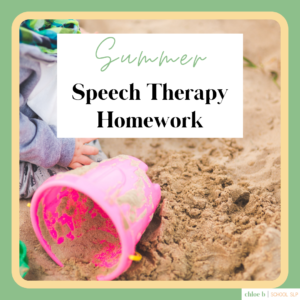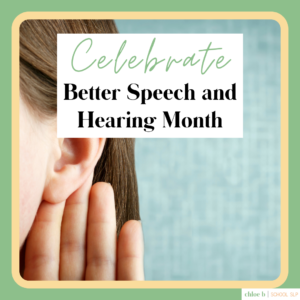Does your child sound ’slushy’ when he or she talks? Or do they stick out their tongue on S and Z sounds? These kinds of errors can impact a child’s speech intelligibility, or their ability to be understood. So you may be wondering, can speech therapy help with a lisp?
Short Answer: Yes Speech Therapy Can Help a Lisp
First let’s talk about what a lisp is. The general population seems to either over simplify lisps (only if you make the TH sound instead of the S) or over generalize lisps (any kind of speech error).
For me, I teach people to consider two types of lisps. One is easy to see visually – a frontal lisp. This is when the speaker sticks his/her tongue out (similar to making the TH sound and it may sound like that) when trying to make the S or Z sound. When I get referrals for this I’ve had parents or teachers say something like, ”She’s doing something weird with her tongue.” It can be hard to pick it out in conversation because we do stick our tongues out for TH (voiced and voiceless) and some people do on L.
The other kind of lisp is a lateralization of the S or Z sound, but it can also happen with CH, SH, Or J productions. This is when the child sounds “slushy” and speech seems more unusual. For this kind of error, the air is coming out of the sides of the month instead of the front like it should be. The tongue is usually blocking the air from coming out of the front.

Can Speech Therapy Help with a Lisp?
The answer to – Can speech therapy help with a lisp? is an easy yes! Speech language pathologists, the people who provide speech therapy, are THE experts that you need to treat a lisp! We speech therapists have 6+ years of higher education! We learn about anatomy, articulation, and related disorders (among many other things). If your provider is a pediatric speech therapist, then they also should have the experience and materials needed to provide therapy that is safe and effective.
A frontal lisp can be easily treated by teaching the child to produce the S and Z sounds (including related blends) while keeping their tongue behind their teeth. I often tell my clients to ”hide your tongue!” and watch themselves in a mirror.
A lateral lisp is treated by teaching the child about airflow. Plus helping them realize where they are pushing the air out and where they should push it instead. They’re both treatable! Yay!
Speech Therapy Can Treat Other Errors Too
Does your child have any other errors? Common ones include not being able to say their R or L sounds correctly. But there are SO many other possibilities. Just like with lisps, speech therapy can be so beneficial to help your child become more intelligible!
Reach out to a local speech language pathologist and ask for an evaluation. (Or ask your doctor for a referral) if you have any concerns! Evaluations can be free through government agencies, insurance, and schools!
If you have any additional questions, then please let me know by commenting below or messaging me on social media!
You can also check out this post to learn more about articulation!





